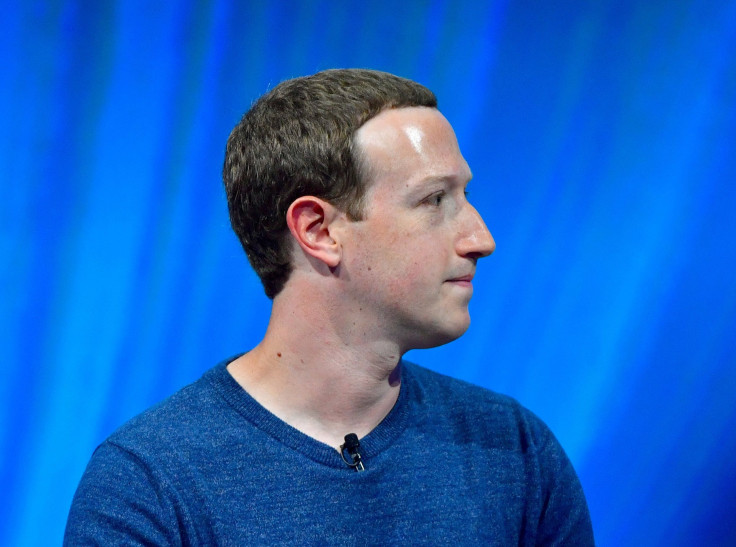Facebook, Mark Zuckerberg At A Leadership Crossroads

Make no mistake, Wall Street is conferencing, shareholders are whispering, users are wounded, and politicians are watching. By any reasonable standard in corporate America, Mark Zuckerberg, chairman and chief executive officer of Facebook, the company he founded with his friends in a Harvard University dorm room in 2004, is under an electron-microscope. And for good reason.
If Zuckerberg weren’t Facebook’s visionary founder, its board of directors would likely have removed him from at least one of his posts for his leadership stumbles and bumbles and the reputational damage that has occurred under his watch, especially over the past two years. Very few CEOs would or could survive such tumult.
Of late, Facebook has spent more time in the news for its flaws and flops than its innovation and influence. Those disasters reached a crisis level in the last two weeks as exposés revealed Facebook refuting, redirecting and dismissing its problems, with the help of a questionable, outside public relations team.
At the center of this whirlwind of bad press and chaos is its embattled, puckish CEO. As one of the big tech CEOs who make up the FANG companies (Facebook, Amazon, Netflix and Google), Zuckerberg is surely the most susceptible, not only because of Facebook’s current plight, but because his leadership qualities might not be up to task of satisfying the long list of disgruntled stakeholders.
Let’s lay credit where it is due. Amazon sells things. Netflix distributes things. Google compiles things. But Facebook makes things, as intangible as they may be. That was Zuckerberg’s genius. Facebook was the champion of the social media space. It redefined how we connect. It allowed personal expression at scales never imagined. It was disruptive before we knew what disruptive was. Moving forward, it used its early girth to grow and its cash to acquire.
Make no mistake, Facebook is still pertinent. It’s not stale. It’s not insolvent. It’s not incorrigible. It’s not insoluble. Facebook is a company with good bones. It has all the resources to be beyond just relevant.
Facebook enjoyed a splashy birth, then strutted through a troubled adolescence (it is, after all, just 14 years old, the archetypical age transformation coming of age). The question is whether or not the right person is in place to usher it into mature adulthood. Maybe it’s time for Facebook to grow up.
Zuckerberg isn’t the first tech CEO to be hobbled by his own growing pains. His skills as a leader have been in question from the beginning, as he was more nerd than chieftain, more tech zealot than inspirational Fortune 500 leader. Today those management qualities — well suited for a youthful, dare it be said, juvenile, firm — have drawn the attention of a restive Congress, not to mention regulators in the United Kingdom and the European Union.
From a leadership perspective, Zuckerberg is a classic example of when your personality and qualities shift from working to your advantage to being a liability. Everything Zuckerberg needed to be successful, his gawky sociability and monomaniacal pursuits of profit and technology, were benefits for a fledgling social media company rising to worldwide muscle. But now those very same qualities prove to be burdens. As Corinthians 1:13 states in its lamentation of aging: “For now we see in a mirror darkly, but then face to face.” Time for some mirror gazing?
Yet, Zuckerberg isn’t like Uber’s former CEO and founder Travis Kalanick or Tesla’s CEO and cofounder Elon Musk, both of whom hurt their companies as much as themselves due to their lack of impulse control, a very childish tendency. Zuckerberg is a measured person. He may be responsible for business embarrassments, but he’s not a temperamental teen.
In the past, I’ve written about the CEO lifecycle as a way to explain the ripening of corporate leadership. A new executive gets to know a company, builds trust and relationships, and establishes a faithful following first. Then the CEO is articulating a strategy and attaining consensus. The company is responding thereafter to the leader’s management. Then, so soon, the CEO is taking the steps to put into place a logical succession and planning a smooth exit strategy.
Under this leadership progression, a strong CEO can transform so much of the operation that at some point he or she is no longer needed. Gifted leaders alter the workplace and culture so much that their talents aren’t compulsory. By being good at what they do, they create the need and opportunity for their own exits.
Obviously, this five-year calculation must be extended for the founder of a company, especially one like Zuckerberg who conjured the business while an undergrad and college dropout, and then spearheaded its growth to a monolithic global force.
Admittedly, much of the growth came after Zuckerberg acknowledged his weakness as a leader — a very adult thing to do — and asked chief operating office Sheryl Sandberg to come in and formalize operations and rebuild the company’s business model with advertising. It was an early sign that Zuckerberg could not only learn from similar arrangements in other tech companies (Google), but also that his ego could withstand the appointment of a management minder.

Facebook’s problems today, however, reflect the limits of Zuckerberg’s continued leadership as both CEO and chairman. Because he owns 60 percent of the shares in the company, his influence is outsized, and the recent battles over privacy concerns, Russian influence peddling, customer boycotts and unscrupulous PR campaigns have reflected this troubling fact. Add to that the exits of high-profile executives, and Facebook looks like a fiefdom with a petulant progeny on the throne.
What makes the potential for leadership change more likely now than ever is that Facebook has lost a significant share of its value in the last year, thanks largely to the wave of scandals and tech repositioning. Is it entirely Zuckerberg’s fault? No. Broader forces are at play here. Markets are no longer as eager about the FANG companies as they were a year ago due to the calls for regulation, stunted earning potential, a lack of capital assets and the shrinking economy.
Given this environment, Zuckerberg must face up to the need for succession planning at Facebook. He must understand that the patriarchy (bro-archy) that served so well needs to be seamlessly acceded to another. One of the things that Facebook cannot afford to have happen is an internal rupture, with a loss of employee morale coupled with an exodus of the talent that has accounted for breakthrough growth and innovation. The brain-children must remain at home.
Zuckerberg doesn’t need to be demoted like Musk. Instead, he needs to look to succession. A successful chief executive should be looking for ways to develop the competencies of those around him and remake Facebook’s culture into a high-performing, employee-supported operation again. For Zuckerberg, the choice may be stepping down as chairman to allow the board to play its critical oversight role and help steer the company through the current morass. As painful as it might be, all good parents step aside.
As hard as it is to fathom, the long-term viability of Facebook may depend on Zuckerberg stepping back and sharing leadership with a stronger, more empowered executive team. That is never an easy thing to do. It involves admitting that it’s time to go, that growing up might not include you. Zuckerberg had the audacity and foresight to create Facebook. The question now is whether he has the same to ensure its future.
Facebook, it’s time to grow up.
James R. Bailey is a professor of Leadership at the George Washington University School of Business.
© Copyright IBTimes 2024. All rights reserved.






















